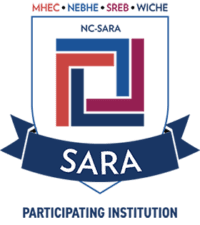- Academics
- Academic Affairs
- Academic Calendars
- Assessment & Accreditation
- Academic Services
- Accelerated Graduate Degree Programs
- General Education
- Combined Degree Programs
- Lougheed Library
- Aquinas Leaders
- HEOP Program
- Honors Program
- Pathways Program
- Spartan Star Summer Program
- Ignite
- College Catalogs
- Graduate School Partnerships
- 2025 Commencement
- Registrar
- Study Abroad
- School of Arts & Social Sciences
- Faculty
- ARTS@
- Justice Studies Institute
- Therapeutic Recreation Certification
- Arts & Social Sciences Program Courses
- Applied Humanities
- Art Therapy
- Communication, Media & Design (CMD)
- Art Education K-12 Certification
- English
- Criminal Justice
- History
- Human Rights & Social Justice Minor
- English with Adolescence Certification
- Forensic Psychology Minor
- Journalism Minor
- Latina/o/x Studies Minor
- MPA Course Offerings
- MPA-CJ Accelerated Program
- Performing Arts Minor
- Psychology
- Public Relations Minor
- Psychology Pre-Occupational Therapy
- Religious Studies / Philosophy
- Social Policy & Civic Engagement
- Social Media Minor
- Social Sciences
- Social Science with Adolescence Certification
- Sociology Minor
- Spanish
- Spanish with Adolescence Certification
- Therapeutic Recreation
- Visual Art
- Writing Minor
- School of Education
- Faculty
- Graduate Education Programs
- Master of Science in Education
- Master of Science in Teaching
- 5-Year Dual Degrees
- School of Education Certificate Programs
- Student Teaching
- Certification
- Bridge2Teaching
- Summer STEAM Camps
- Summer Literacy Program
- Education Program Courses
- Art Education K-12
- Childhood Education
- Childhood & Special Education
- Early Childhood & Childhood Education
- Educational Studies
- English with Grades 7-12 Certification
- Mathematics with Adolescence Certification
- Social Science with Grades 7-12 Certification
- Spanish
- Mathematics
- Master of Science in Education, TESOL
- Master of Science in Teaching, TESOL
- Post-Masters Professional Certificate in TESOL
- School of Business
- Faculty
- Online Business Advanced Certificate Programs
- Graduate Business Programs
- Business Program Courses
- Accounting
- 150 Hour Accounting
- Accounting Minor
- Business Minor
- Digital Marketing Minor
- Economics Minor
- Finance
- Finance Minor
- Hospitality Management
- Hospitality Management Minor
- Human Resource Management Minor
- International Business Minor
- Management
- Management Information Systems Minor
- Management Minor
- MBA
- MBA: Human Resource Management
- Marketing
- Marketing Minor
- SPM – Business / Athletic Administration
- SPM – Recreational Sports & Coaching
- Sport Management Studies Minor
- Supply Chain Management Minor
- School of STEM
- Faculty
- Graduate STEM Programs
- STEM Advisory Board
- Motorola Solutions Foundation Computer Science Scholar Success Program
- NSF Louis Stokes Alliances for Minority Participation Grant
- Partnership Programs
- STEM Adjunct Faculty Academy
- Summer Exploration Program
- STEM Program Courses
- Applied Mathematics
- Biology (BA)
- Biology (BS)
- Biology Pre-Chiropractic
- Biology Pre-Pharmacy
- Biology Pre-Physical Therapy
- Biology Pre-Podiatric Medicine
- Biochemistry
- Biotechnology Minor
- Chemistry (BA)
- Chemistry Minor
- Computer Science
- Computer Science – Cloud Computing
- Computer Science – Data Analytics
- Computer Science – Graphics
- Data Science
- Exercise Science – Allied Health
- Exercise Science – Kinesiology
- Mathematics – Actuarial Science
- Exercise Science Minor
- Forensic Science
- Mathematics
- Medical Technology
- Physics (BA)
Contact Us
Teaching, learning, and evaluation work together to foster academic excellence.
By methodically conducting assessment and analysis, the College can make well-informed choices regarding the structure and execution of both its degree-focused and broad educational initiatives. Through rigorous assessment, we strive to empower faculty and students with valuable insights that drive informed decision-making, curriculum development, and instructional refinement. By embracing evidence-based practices, we aim to create a dynamic learning environment that prepares students for success in their chosen paths and contributes to the advancement of our institution’s educational standards.
Middle States Self Study
St. Thomas Aquinas College is accredited by the Middle States Commission on Higher Education (MSCHE), a voluntary, non-governmental, regional membership association currently serving higher education institutions in Delaware, the District of Columbia, Maryland, New Jersey, New York, Pennsylvania, Puerto Rico, the Virgin Islands, and other geographic areas in which the Commission conducts accrediting activities.
MSCHE mandates that its member institutions demonstrate how they continue to meet seven rigorous and comprehensive standards in an Accreditation Review Cycle; the Self-Study is integral to this cycle.
A Self-Study requires an institution to engage in an in-depth, comprehensive and reflective assessment process to identify institutional priorities as well as opportunities for improvement and innovation. A successful Self-Study leads to a reaffirmation of accreditation.
The Self-Study process begins two years before an institution submits its Self-Study Report. St. Thomas Aquinas College will begin the Self-Study process in the Fall of 2023. Through this process, the institution must provide evidence and document compliance with the Commission’s standards for accreditation, requirements of affiliation, policies and procedures, and federal compliance requirements. (Source: www.msche.org)
Access the Self-Study website (login required)
Academic Assessment
Annual Institutional Updates
2019
2021
2022
2023
General Education Assessment
STAGE Assessment Rubric
General Education Student Learning Outcomes
- Students will demonstrate an understanding that math can be applied to everything, and that it underlines much of our modern world.
- Students will demonstrate an ability to interpret and understand information presented in graphs, tables, equations, and other mathematical forms. Students will take this information and make appropriate inferences which they can back up with quantitative arguments, including trend analysis and predictions.
- Students will be able to demonstrate how the presentation of information can influence how it is understood and how presentation can be used to manipulate and mislead.
- Students will demonstrate their understanding of assumptions made in the presentation of data or the creation of a math model and the balance between accuracy of a model and complexity of the model.
- Students will demonstrate computational skills and proficiency.
- Students will demonstrate mathematical manipulation skills and proficiency.
- Students will demonstrate the ability to create, analyze and apply data and mathematical models; understand different types of mathematical models (for example, the difference between linear and exponential); and understand when each is appropriate. Students will show they are able to test these models against data and use these models to create predictions.
- Students will demonstrate the ability to use mathematical and quantitative arguments in support of a statement, and understand the best way to present information for their argument.
- Students will demonstrate the ability to develop a plausible hypothesis to explain an issue or problem.
- Students will demonstrate the ability to design an experiment to test a hypothesis.
- Students will analyze data to formulate evidence based conclusions.
- Students will make claims and propose research questions or hypotheses based on scientific theories or models.
- Students will use statistics to answer research questions and evaluate the strength of the evidence provided in support of given hypotheses.
- Students will critique different aspects of a research design (e.g., identify sources of potential bias, confounds, adequacy of sample).
- Students will interpret data patterns presented in tables, figures, and graphs to interpret results, make comparisons, and draw conclusions.
- Students will demonstrate the ability to explain natural phenomena using scientific concepts.
- Students will define the scope of a research question or thesis completely.
- Students will access needed information using a variety of search strategies.
- Students will evaluate information and its sources critically.
- Students will use information effectively to accomplish a specific purpose
- Students will access and use information ethically and in accord with the College’s Academic Integrity Policy.
- Students will identify a focused and manageable topic.
- Students will demonstrate the ability to construct a problem statement with evidence of most relevant contextual factors.
- Students will organize evidence to reveal important patterns, differences, or similarities related to focus.
- Students will propose one or more solutions/hypotheses that indicates comprehension of the problem presented.
- Students will evaluate solutions while considering the history of the problem and feasibility and impacts of the solution.
- Students will implement the solution in a manner that addresses multiple contextual factors.
- Students will review results relative to the problem defined with consideration of need for further work.
- Students will demonstrate consideration of context, audience, and purpose that has a clear focus on the assigned task.
- Students will use appropriate, relevant, and compelling content to explore ideas within the context of the discipline and shape the whole work.
- Students will demonstrate consistent use of important conventions particular to a specific discipline.
- Students will demonstrate consistent use of credible, relevant sources to support ideas that are situated within the discipline and the genre of the writing.
- Students will use straightforward language that conveys meaning to readers.
- Students will be able to create an organizational pattern that is clearly and consistently observable within the presentation.
- Students will make language choices that are thoughtful and generally support the effectiveness of the presentation and are appropriate to the audience.
- Students will use delivery techniques to make the presentation interesting and the speaker appear comfortable.
- Students will use a variety of supporting materials to make appropriate reference to information or analysis that generally supports the presentation or establishes the presenter’s authority on the topic.
- Students will create a central message that is clear and consistent with the supporting material.
Institutional Assessment
Institutional Assessment Chart
Accreditation
ACCREDITATION ([C.F.R. § 668.43(A)(6)])
St. Thomas Aquinas College is recognized as a Top Tier Regional University by several national publications, including U.S. News & World Report: America’s Best Colleges.
The College is accredited by:
Middle States Commission on Higher Education (MSCHE)
1007 North Orange Street
4th Floor, MB #166
Wilmington, DE 19801
St. Thomas Aquinas College is an accredited institution and a member of the Middle States Commission on Higher Education (MSCHE) www.msche.org. St. Thomas Aquinas College accreditation status is Accreditation Reaffirmed. The Commission’s most recent action on the institution’s accreditation status on April 16, 2018 was to reaffirm accreditation. MSCHE is an institutional accrediting agency recognized by the U.S. Secretary of Education and the Council for Higher Education Accreditation (CHEA).

St. Thomas Aquinas College participates in the State Authorization Reciprocity Agreements.
The School of Education is accredited by the Association for Advancing Quality in Educator Preparation (AAQEP):
Association for Advancing Quality in Educator Preparation (AAQEP)
P.O. Box 7511
Fairfax Station, VA 22039
Telephone: (301) 276-5106
The programs in the School of Business are accredited by:
International Accreditation Council for Business Education (IACBE)
11960 Quivira Road
Overland Park, Kansas, 66213 USA
Telephone: (913) 631-3009
CAHIIM – Commission on Accreditation for Health Informatics and Information Management
200 East Randolph Street, Suite 5100
Chicago, IL 60601
info@cahiim.org
Telephone: (312) 235-3255
The Healthcare Management & Informatics concentration is an ACHE Higher Education Network member.
Individuals interested in reviewing the documents describing accreditation, approval, or licensing may contact the Provost:
Office of the Provost
St. Thomas Aquinas College
125 Route 340
Sparkill, NY 10976
845-398-4083
